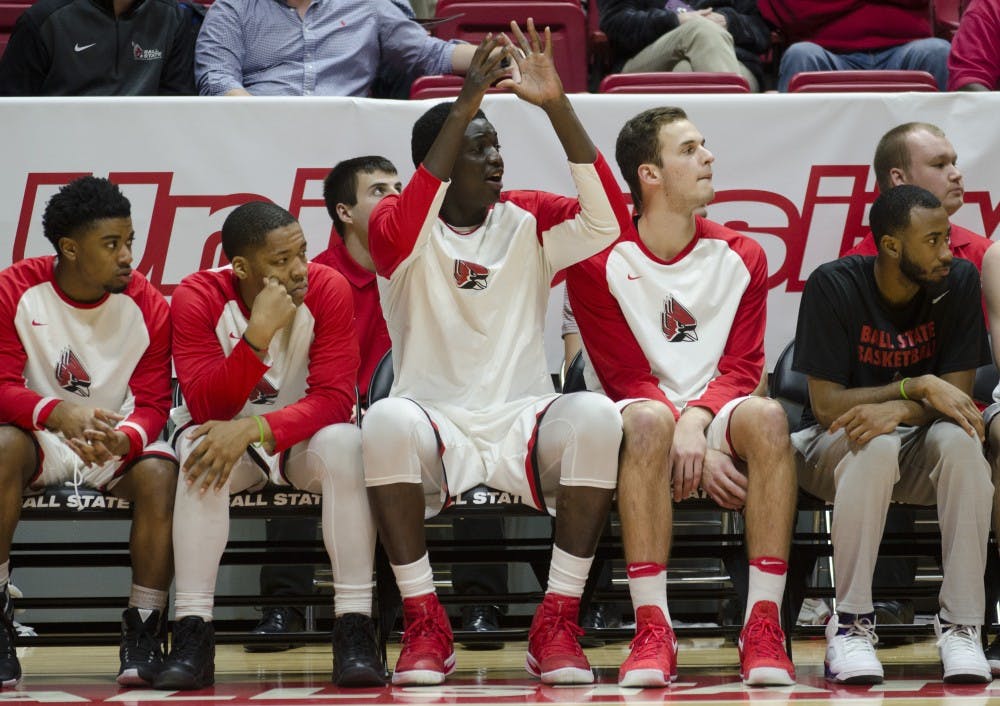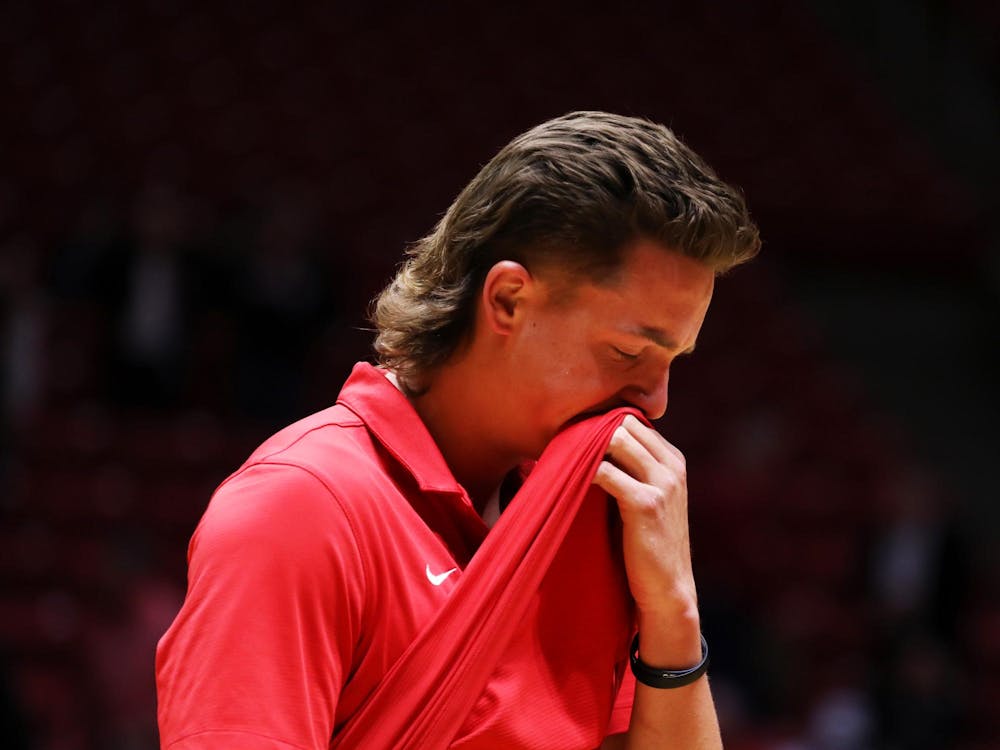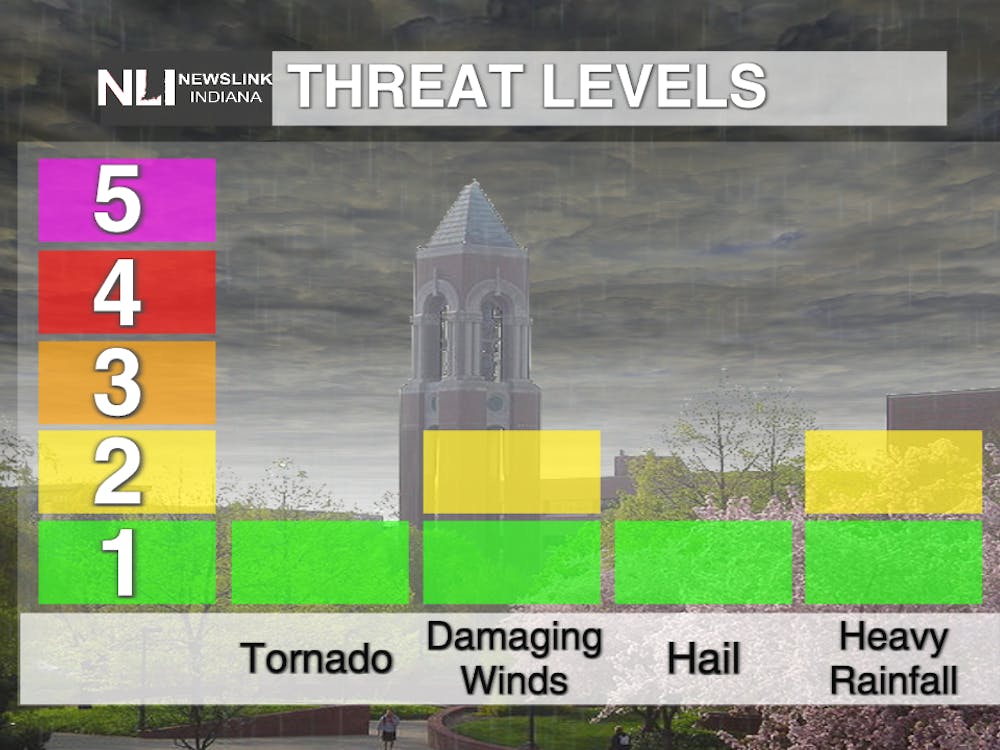In August 2012, Ball State men’s basketball center DouDou Gueye came to the United States for the first time. He assumed that the entire country resembled New York City , but that was far from the truth when he first stepped outside of the car and took a glimpse around at his new home of Scottsbluff, Nebraska
“All I see is cornfields,” Gueye said. “I’m looking around asking what’s going on?”
The then 6-foot-7 forward from Senegal didn't speak English and lost his luggage because he couldn't read the airport signs, but still navigated a New York City airport well enough to make his connecting flight to Denver.
Russ Beck, then head coach at Western Nebraska Community College, picked him up and they made the drive to Scottsbluff. The town of just over 15,000 people was not the America that Gueye pictured.
“It was just crazy when you’re in Africa and you go to the United States all these buildings you see on T.V. all this great stuff,” Gueye said.

But Gueye came to America to do two things: play basketball and get an education. Western Nebraska Community College was only the first
A greater role
Every practice in front of an empty John E. Worthen Arena, Gueye battles Ball State's other centers to make both himself and the underclassmen better.
Head men’s basketball coach James Whitford said he needed a player like
“We needed an older big guy,” Whitford said. “We needed someone with more experience.”
But for a graduate student like Gueye, the expectations are higher. While Whitford wanted an older, more experienced big man, that same player had to have a high enough GPA to get into the graduate program at Ball State.
“To get into graduate school at Ball State as a student-athlete is much harder than at most institutions,” Whitford said. “Because of the graduate school requirements, 80-90 percent of the student-athlete transfers can’t handle our graduate program here. It takes someone as good a student as [Gueye].”
To be considered for one of the Ball State graduate programs, which as a whole accepts 4,500 students every year, applicants must have either a cumulative baccalaureate GPA of at least 2.75 on a 4.0 scale or a cumulative GPA of at least 3.0 on a 4.0 scale in the latter half of their baccalaureate.
Gueye, in his last season of NCAA eligibility, is on track to receive his
Being the third center on the team and only appearing in five games this season is not the way he originally wanted to finish his collegiate career, but both Whitford and Gueye are realizing that his role is more than minutes played.
“I think initially when he figured out he was the third center it was hard on him emotionally,” Whitford said. “Slowly but surely he’s come around and embraced it, and he’s doing an unbelievable job in that role."
“It’s not an easy role to play because when he came here it’s not like I told him to play that role,” Whitford said.
But it’s a role that has consistently aided in the development of Moses.
“He definitely makes me better,” Moses said. “He’s always going hard every day in practice. He’s very physical with me and that’s the stuff I need, especially in the conference we play in.”
Still, it wasn't — isn't — easy for Gueye to ride the bench.
“It got in my head at first,” Gueye said. “Coach knew it was not easy for me. I thought maybe I’m wasting my time. Then I’m like, 'Why not just focus on getting better because you never know — one day they will call my name.'”
Many young players would give up. Most wouldn’t sit on the bench with a smile cheering on athletes four or five years younger than them.
But most aren’t like Gueye.
“He’s a much more mature person,” Whitford said. “I think he’s earned every body’s respect by the way he’s embraced his role.”
Invitation to success
As a child, Gueye didn’t stand out too much back in his home of Dakar, Senegal.
Aside from his towering figure, he went to school, came home, did his homework and went to the soccer field to play with his friends. Soccer was his first love, but his mother saw
“My mom said, 'You got to stick with basketball, you keep getting tall,'” Gueye said. “Sometimes when I wanted to go play soccer, she would take my soccer shoes away.”
Even with her unorthodox actions,
He was invited to Sports for Education and Economic Development Academy otherwise known as the SEED Academy. SEED is a basketball-focused boarding school which accepts only 40 boys from grades 6-12, providing them with the tools they need to excel in the classroom and on the basketball court.
According to the SEED website, 92 percent of SEED graduates have played either college or professional basketball, and 33 SEED alumni have gone on to play professional basketball in 16 different countries.
Last season, 26-year-old Gorgui Dieng — a SEED graduate — signed a contract with the Minnesota Timberwolves for four years and $64 million. Dieng's contract became the largest given to a West African basketball player.
At the time
“That’s why she sent me to SEED,” Gueye said. "She knew they were going to come in and help me get my education and play basketball.”
According to
UNESCO, from 2009 through 2011 the average cumulative
“I feel like it was a good place for me to stick with school,” Gueye said. “The city I lived in, it was hard to come out of the school. A lot of my friends, they quit school early.”
SEED got Gueye get recruited by Western Nebraska Community College.
A whole new world
Western Nebraska Community College, a member of the National Junior College Athletic Association, competes in the Region IX and prides themselves on preparing student-athletes to move on to Division-I.
Then head men’s basketball coach Russ Beck previously coached many international students during his seven-year tenure. When Beck called SEED asking if there were any players interested in playing for him,

Beck met Gueye and Youssoupha Kane, one of
“As we're driving back, you’re trying to make conversation,” Beck said. “Their English is very broken; they’re very excited and happy but apprehensive.
Gueye, never even hearing the word Nebraska before, was ready to see his new home.
“Leaving from Africa, it's not easy,” Gueye said. “It was hard because I was learning English and playing basketball. I had to learn the system. Wherever you are, you got to learn how to adapt."
Gueye, already knowing Wolof — one of the national languages of Senegal — and French, had a strategy.
“A lot of people think, 'Oh you’re just smart, that’s how you learned it,'” Gueye said. “
Language barriers weren’t the only change Gueye was facing. Coming in at 6-foot-7 with a thin frame, he had always played the guard and forward position in Senegal.
But after countless weight room workouts and more glasses of chocolate milk than he ever wanted to drink, Gueye put on weight and three inches.
“I guess I have to start playing the big man now,” Gueye said after going through his body's changes.
After learning a new position, a new language and a new culture, Gueye
During his time at Western Nebraska Community College, Gueye was taking 18 credit hours, learning English and playing basketball.
He began looking for schools. Having a friend at South Carolina State already,
“After my visit, I committed that day,” Gueye said. “Before I left I just knew. I love the people out there.”
Gueye spent two seasons with the Bulldogs. After redshirting his first year due to a broken wrist, Gueye played in all 34 games making 18 starts in the 2015-2016 season.
A familiar sight
"I learned a lot of stuff from playing the guard to the big man, from leaving this team [and] going to another team," Gueye said. "Different coaches got different styles."
While time is winding down on
“I’m just trying to finish this year strong, help this team," Gueye said. "Maybe if I play I'll help this team. If I’m not going to play, I’m still going to go hard in practice and help the team win.”
Gueye had never heard of Ball State, but as he drove through Indiana en route to Muncie, a familiar sight brought back memories from when his college basketball career began nearly five years ago:
Cornfields.





